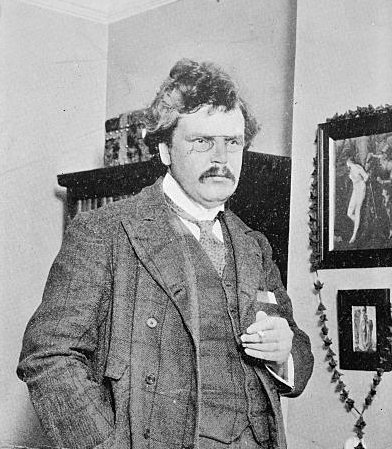
Like many innovations, Twitter is a good angle to use to talk about something that's been talked about a thousand times before. To keep you updated on the "they"-as-a-gender-neutral-pronoun debate, I give you this article from the New York Times Magazine. (HT: Adam from ElShaddai Edwards from Mike Aubrey)
It makes all the claims that have driven the good Professor Liberman to distraction: "Writers as far back as Chaucer used ['they'] for singular and plural, masculine and feminine." "Many great writers — Byron, Austen, Thackeray, Eliot, Dickens, Trollope and more — continued to use they and company as singulars." Merriam-Webster accepts it. No examples are cited, though, disappointing my hopes of seeing a true clash of the titans as the Times rose to accept Liberman's challenge.
The article's authors (Patricia T. O'Conner and Stewart Kellerman) make an argument I've not heard before, which is that the idea that "he" can refer to both genders stems from "Anne Fisher, an 18th-century British schoolmistress and the first woman to write an English grammar book." They cite the delightfully named Ingrid Tieken-Boon van Ostade for this fact (I assume to chase it down and find examples, one would have to read her book. Ooo, it's only $137 at Amazon!)
It seems that it ought to be incredibly easy to decide between O'Conner/Kellerman and Liberman on this point: one side claims that "he" was never used as a gender-neutral pronoun before Anne Fisher; the other claims that "they" was never so used before the mid-20th century. This calls for some collating. This calls for a dissertation.
On second thought, before I send in my application for Ph.D. programs, I can think of one data point off the top of my head that seems to blow O'Conner/Kellerman out of the water: the earliest English Bible translators used "he" as a gender-neutral pronoun. Now, maybe one could argue that that usage was a carry-over from Greek and Hebrew, and that the English Bibles reshaped the language and paved the way for Fisher's declaration . . .
I've been compulsively listening to Wait, Wait, Don't Tell Me for the last few months (funniest show on radio), and I notice that Peter Sagal always says to the Not My Job guest, "Answer two of the questions correctly and you'll win our prize for one of our listeners: Carl Kassel's voice on their home answering machine." That sheds no light on the subject, I guess, since I think Liberman would accept using "their" with "one."







